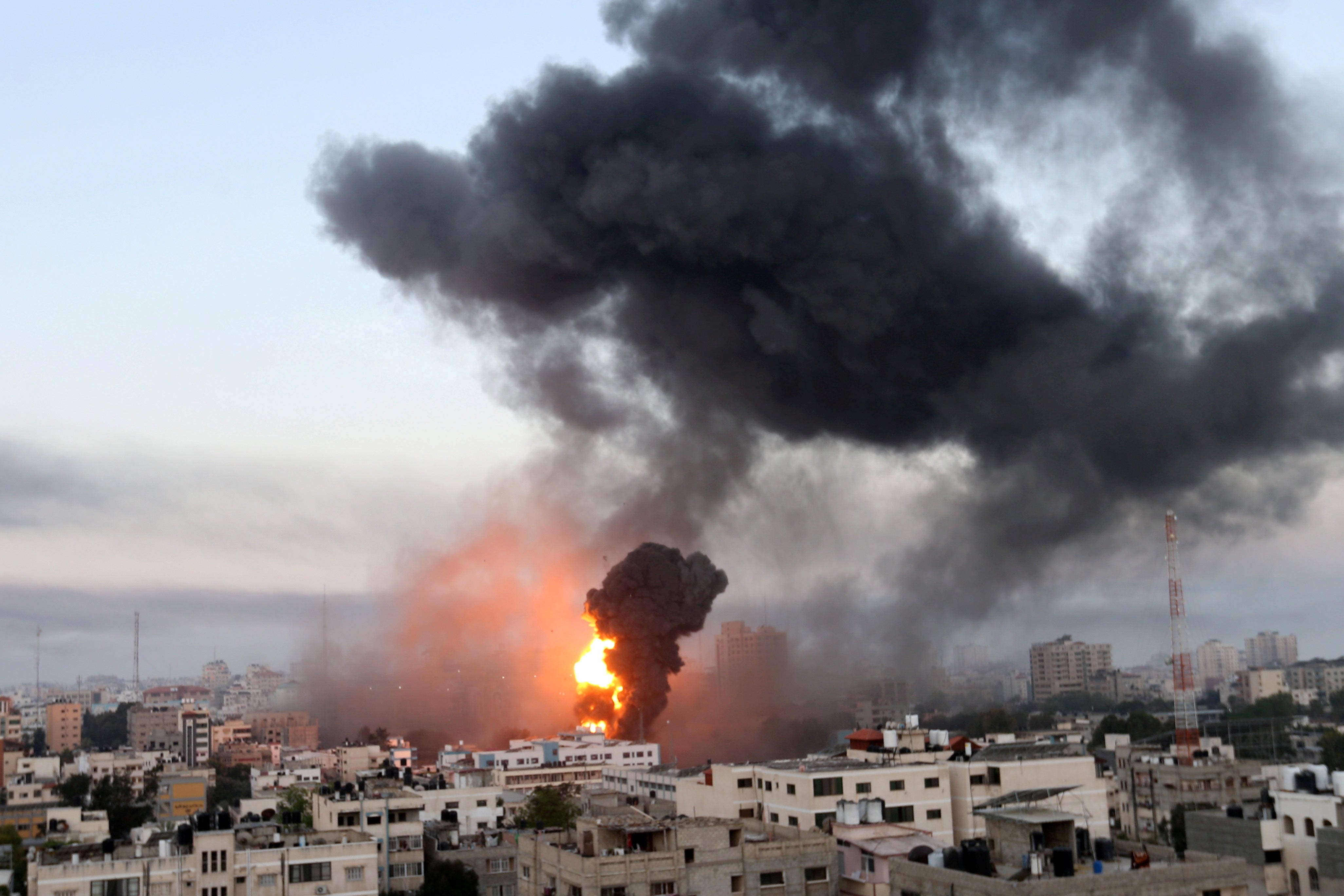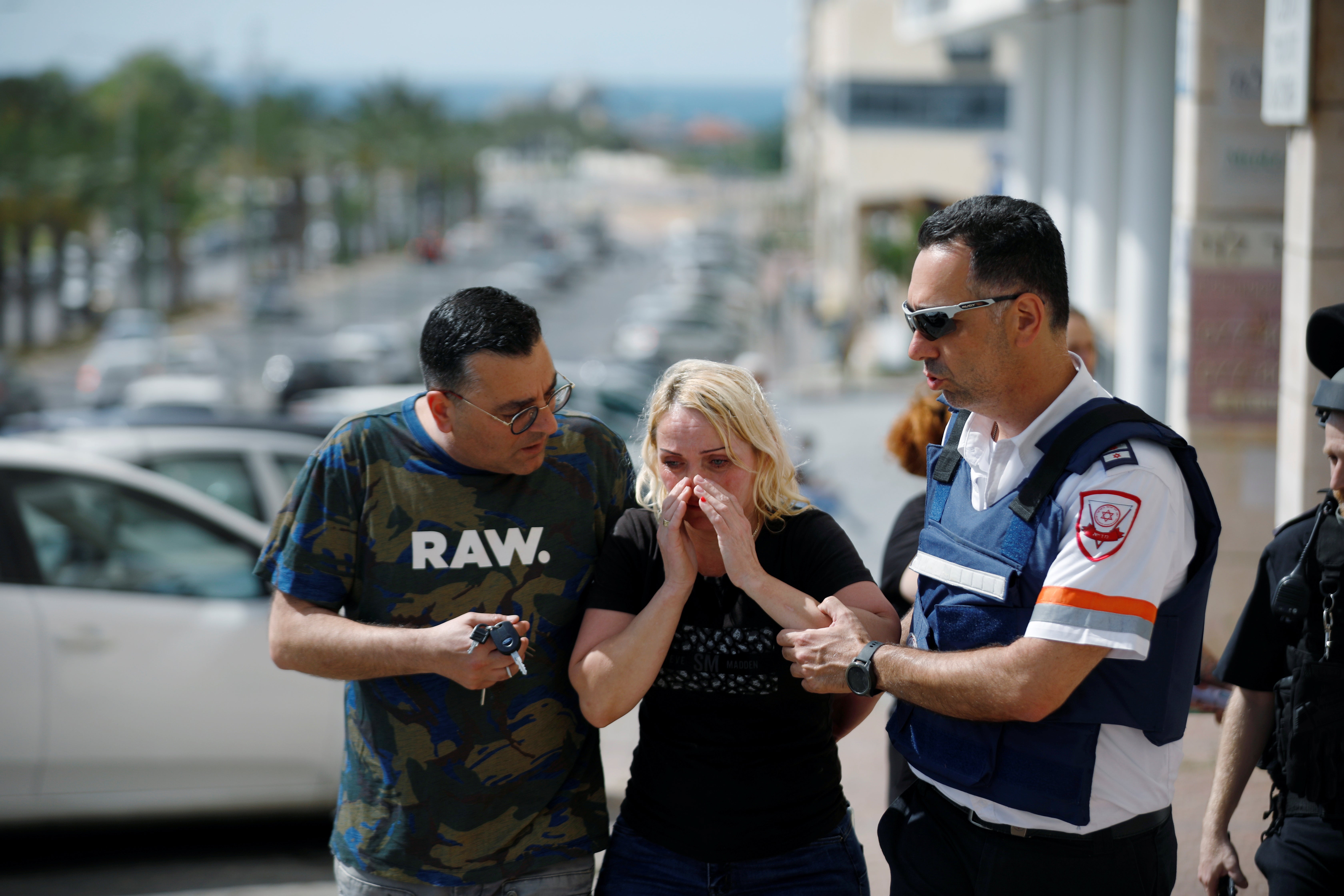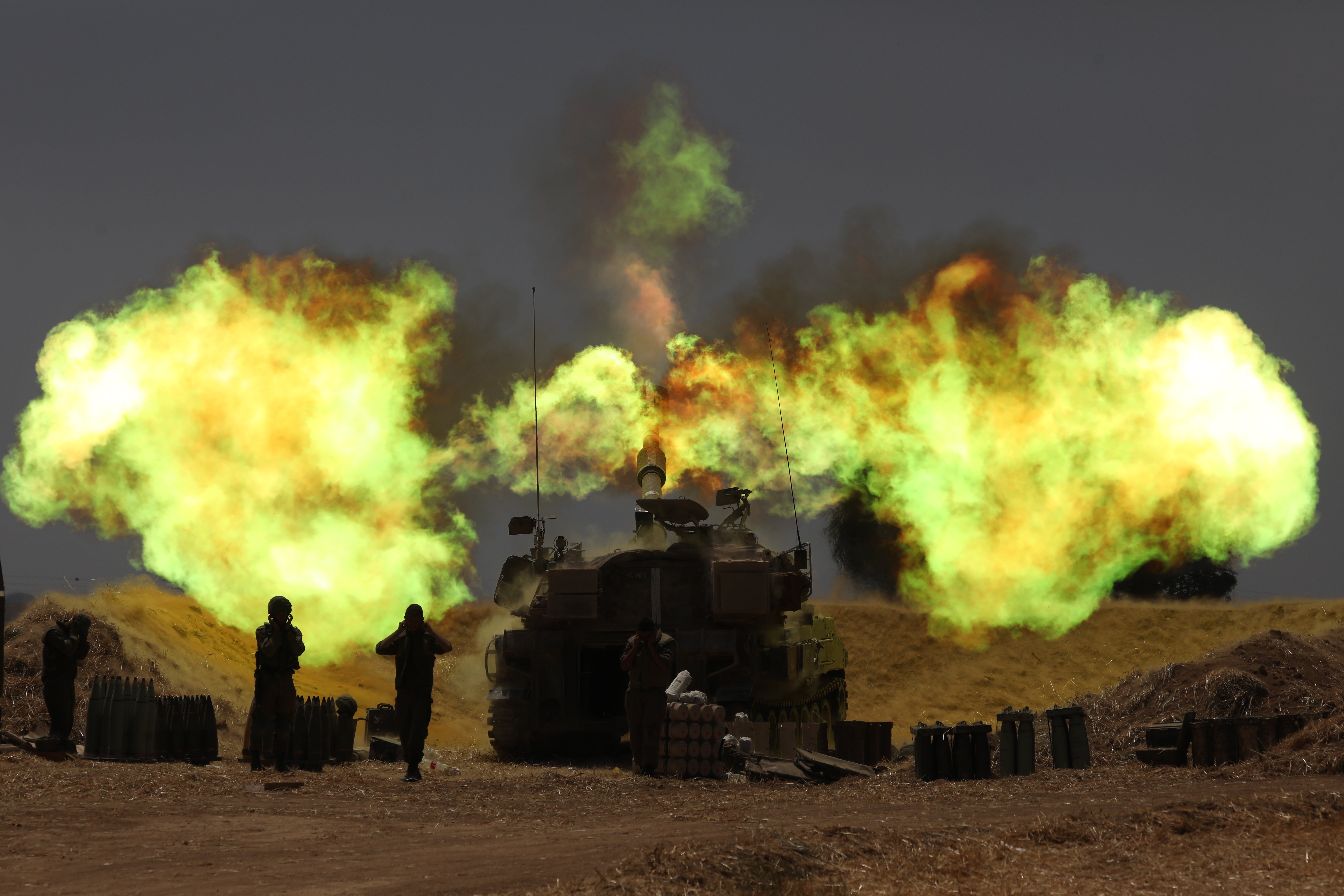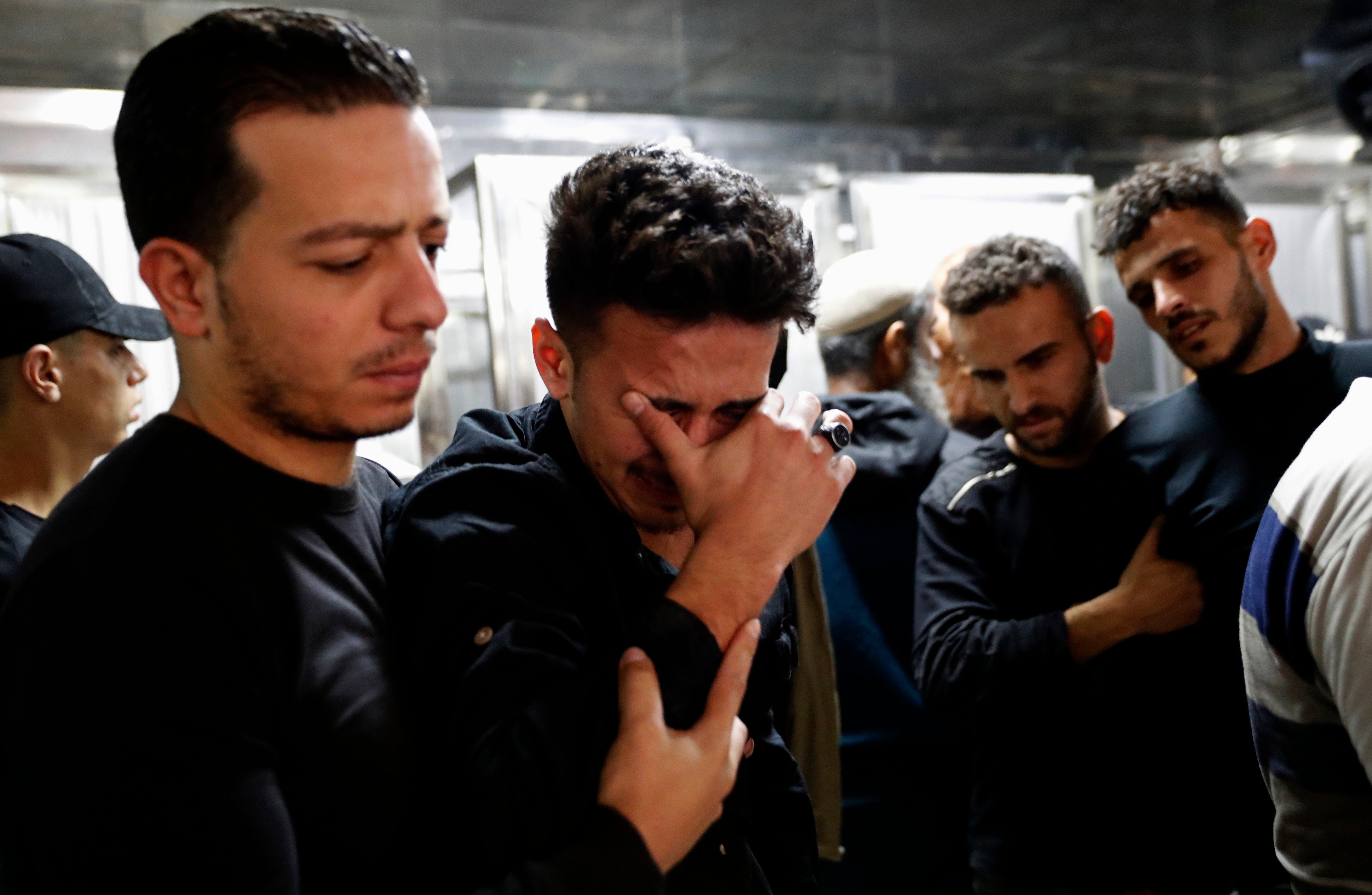‘Blood was everywhere’: Under rocket fire and airstrikes, civilians pay the heaviest price
‘We didn’t see it coming, we just heard two big explosions’

Your support helps us to tell the story
From reproductive rights to climate change to Big Tech, The Independent is on the ground when the story is developing. Whether it's investigating the financials of Elon Musk's pro-Trump PAC or producing our latest documentary, 'The A Word', which shines a light on the American women fighting for reproductive rights, we know how important it is to parse out the facts from the messaging.
At such a critical moment in US history, we need reporters on the ground. Your donation allows us to keep sending journalists to speak to both sides of the story.
The Independent is trusted by Americans across the entire political spectrum. And unlike many other quality news outlets, we choose not to lock Americans out of our reporting and analysis with paywalls. We believe quality journalism should be available to everyone, paid for by those who can afford it.
Your support makes all the difference.The dull drumbeat of rocket fire sounds with worrying regularity. With it the eerie wail of sirens sends Israeli citizens in the southern town of Ashkelon running for the bomb shelters.
During this bombardment a woman struggles with her elderly relative who is wheelchair-bound as she tries to reach safety in time. A younger woman, in shock, breaks down in sobs on the floor.
Behind them is the bombed-out home of their neighbour, one of two women in Israel who were killed in a direct hit from Gaza just minutes before. The interior has been torn apart as if by a raging tornado. Another wheelchair lies beached on a mound of rubble.
Just over 5km south, in a northern neighbourhood of Gaza, a family of Palestinian children play in the front yard of their home – unaware, with no siren to warn them, of the strike about to blow up their lives.
“Every day in Ramadan they play in the street at this time before Iftar,” their father Youssef al-Masri tells The Independent with a deep crack in his voice.
“We didn’t see it coming, we just heard two big explosions.”
Two of his children, Ibrahim and Marwan, were instantly killed, alongside eight of his relatives and neighbours. In Gaza there are no bomb shelters and the death toll is considerably higher.

“Everyone was running in the street, children were bleeding, mothers were crying, blood was everywhere.”
Footage taken of the aftermath of airstrikes showed children without limbs, screaming.
Civilians are once again chewed up in a devastating surge of violence that has locked Israeli military and militants in Gaza in a deadly battle that for now appears to have no end.
It started weeks ago in the simmering city of Jerusalem, captured by Israel in the 1967 war and later effectively annexed. It is claimed by both the Israelis and Palestinians for their capital.
The most recent touchpaper event was the controversial Israeli decision to evict four Palestinian families from Sheikh Jarrah neighbourhood in occupied East Jerusalem in place of Israeli settlers.
The United Nations said the order may amount to a war crime – a suggestion Israel rejects – and protests erupted across the country.
This led to a spiral of violence that culminated in Israeli forces storming al-Aqsa mosque, the third most holy site in Islam, with stun grenades and tear gas while Palestinians threw rocks, bottles and fireworks at the security forces.
Furious, Hamas, the militant group that runs Gaza, fired six long-range rockets at Jerusalem – the first time that has happened in seven years – igniting a cross-border exchange of fire that now threatens to tip into full-blown war.
Since then, Gaza’s health ministry says, at least 53 Palestinians – including 14 children – have been killed, mostly by Israeli airstrikes, which have pounded the tiny, blockaded strip, hitting two multi-storey residential buildings that Israel said housed military targets.
In Israel, health officials say six Israelis have been killed, including three women, in an “unprecedented” barrage of rockets and anti-tank fire from the strip. On Tuesday night Hamas militants fired around 100 rockets at the Tel Aviv area in an extraordinary attack that lit up the night sky.

In southern Israel, where incoming fire had appeared to set fire to a fuel tank, Shmulik Friedman, the head of the fire department for the south, said his teams were stretched responding to hundreds of rocket attacks.
“In the two years I have been commander of the southern district this is one of the most challenging days we’ve seen,” he said.
In north Gaza, paramedic Saleh Abu Leila describes chaotic scenes at the Indonesian hospital where he works as fifty heavily wounded people swamped the hospital in 24 hours.
There, a 13-year Egyptian-Israeli blockade on the enclave has among many things devastated the economy and healthcare system, leaving a significant proportion of the essential drugs list missing. It means treating the wounded is even harder.
“It’s the worst fighting we have witnessed since the war of 2014 or the war of 2012,” Abu Leila says.
“Monday was the worst as it was a heavy strike targeted at a group of children. You feel so helpless.”
Despite the mounting death toll, neither side has backed down, with Israeli prime minister Benjamin Netanyahu saying officials decided to “increase both the strength and rate of the strikes” against militant groups Hamas and Islamic Jihad.
Hamas leader Ismail Haniyeh meanwhile said that Qatar, Egypt and the United Nations had been in contact urging calm, but his group’s message to Israel was: “If they want to escalate, the resistance is ready; if they want to stop, the resistance is ready.”
And so civilians are once gain caught up in the fighting that many fear could tip into an extended conflict.
At the bombed-out home in Rishon LeZion of one woman who was killed by the extraordinary barrage of rockets on Tuesday night, security forces and medics pick their way through the charred and tangled rubble that edge a small crater.

“It feels like both sides are trying to prove their power. We really fear there could be war, and we want peace,” says Ronen, 56, a neighbour.
In Gaza, Haj Hamza al-Masri, who is related to Youssif, says the children were playing around the home and their uncle was working near them, preparing food for his animals, when the strike came that wiped out a large part of the family.
“Suddenly the planes hit them, with no reason. Unarmed people, they were children,” she says.
“The war is not our goal; we are a nation who’s been living under siege and occupation for more than 70 years and the world is blind. We appeal to human rights.”
Join our commenting forum
Join thought-provoking conversations, follow other Independent readers and see their replies
Comments